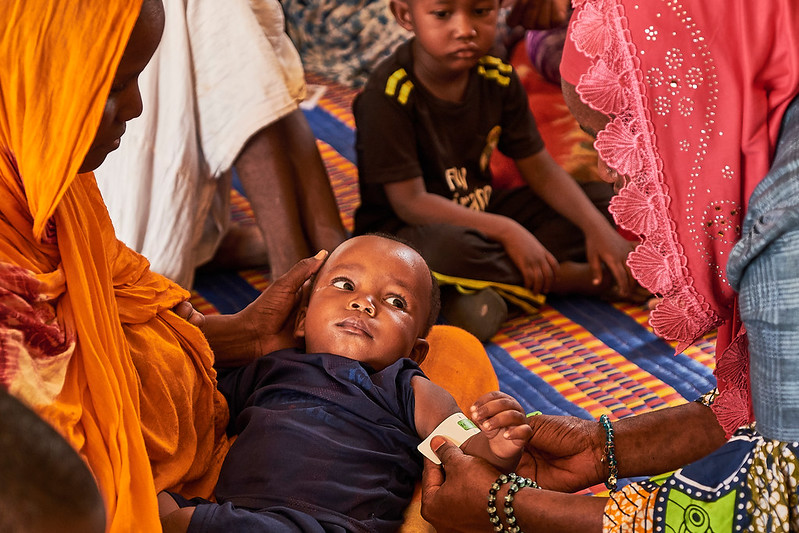5 Facts About Healthcare in Mauritania
 The Islamic Republic of Mauritania is a vast desert country with a significant nomadic population. These facets of Mauritania’s geography present challenges for creating healthcare infrastructure. In particular, physical distance and large rural populations make distributing care a massive undertaking. Accordingly, there are only 0.19 practicing physicians per 1,000 people in Mauritania. Here are five facts about healthcare in Mauritania.
The Islamic Republic of Mauritania is a vast desert country with a significant nomadic population. These facets of Mauritania’s geography present challenges for creating healthcare infrastructure. In particular, physical distance and large rural populations make distributing care a massive undertaking. Accordingly, there are only 0.19 practicing physicians per 1,000 people in Mauritania. Here are five facts about healthcare in Mauritania.
5 Facts About Healthcare in Mauritania
- A lack of proper infrastructure devastates public health in rural, vulnerable regions. Problems stemming from poor sanitation and a lack of clean water plague Mauritania. Many areas of Mauritania go completely without consistent water sources due to geographic barriers. Overall, the capital city of Nouakchott is the only region with adequate water supply and treatment. This lack of water leads to serious consequences for healthcare in Mauritania. According to the World Health Organization, 2,150 Mauritanians die from diarrheal disease per year. Ninety percent of these deaths are linked to a lack of sanitation and insufficient access to clean water. In addition, droughts and desertification are preventing rural populations from accessing water at all. This is yet another challenge to improving healthcare in Mauritania.
- Many political barriers inhibit attempts to improve healthcare in Mauritania. The country suffers from a shortage of doctors and treatment facilities in rural areas of the country. While there are potential avenues for funding expansion, the Mauritanian government tends to keep infrastructure projects centralized to the capital region. Although the capital is the largest city and presents the most promise for economic growth, this neglects rural citizens. For example, the national insurance program prioritizes a portion of the urban population, as it only covers government officials and those who are formally employed. Poverty-stricken people are further disadvantaged by the astronomical cost of healthcare without any insurance. Thankfully, groups like the Institute of Tropical Medicine are working to provide a concerted effort to expand healthcare in Mauritania.
- Mauritania struggles with reproductive and neonatal care. According to the World Bank, Mauritania has a birthrate of 4.62. Combined, the birthrate and lack of adequate neonatal care lead to high infant and maternal mortality. However, the International Development Association is dedicating $23 million to expanding the reach and quality of maternal, neonatal and reproductive healthcare in Mauritania. The initiative also aims to combat childhood malnutrition by investing in further healthcare and nutrition services for children. These efforts, part of the Mauritania Health System Support project, aspire to alleviate issues in healthcare beyond the capital city. This will provide much-needed relief to rural and refugee populations.
- International aid is going toward healthcare in Mauritania. The International Development Association of the World Bank is providing funds to help local governments build sanitation and water treatment infrastructure. These funds will address the gross centralization of public utilities and expand access to water and sanitation services into rural areas. With tools to manage public services provided through the Decentralization and Productive Intermediate Cities Support project, localities will have the means to create a substantive foundation for healthcare in Mauritania.
- The Institute of Tropical Medicine is also promoting healthcare in Mauritania. In her 2018 article for the Institute of Tropical Medicine, public health expert Kirsten Accoe details how the ITM intends to establish a local health system team in the country. This team would tackle healthcare on the district level in conjunction with centralized efforts to improve healthcare. The initiative aims to create sustained quality care by increasing the retention of healthcare workers in each district, which has previously been an issue due to lack of funding, equipment and trained personnel. ITM’s effort can therefore allow more to people get the relief they deserve.
Improving healthcare in Mauritania is certainly a complex task. But the government and aid organizations can come together to cultivate a coordinated effort to improve infrastructure, assist healthcare professionals at the district level and expand the reach of care. In doing so, they will begin to create an equitable healthcare system and provide all Mauritanians with the care they deserve.
– Olivia Bielskis
Photo: Flickr
